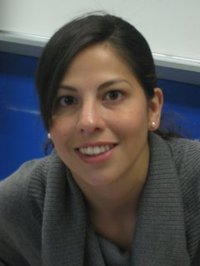During my first year as a teacher, when every day left me feeling spent, a veteran educator described overcoming challenges in teaching as concentric circles. As soon as you master one circle, another one requiring mastery presents itself. While his comment did not make me feel better in that moment (I was more preoccupied with keeping students in their chairs and managing without a copy machine that had stopped working), ten years later I could not agree more. Each year has brought with it new challenges and learning experiences. As a veteran teacher, I may have mastered keeping students relatively engaged. Instead, I now struggle with helping English language learners effectively learn vocabulary or adapt reading strategies to access the assigned text. Ten years in, my ability to foresee challenges and deal with them has improved significantly. Yet experience is not the only reason I am more successful now. The necessary foundation came from my teacher preparation program.
In that program I, a naïve student teacher, was paired with a twenty-five-year veteran who exemplified what it means to constantly learn and grow as an educator. This man was the epitome of a successful teacher - he had his National Board certification, had helped start a school, worked with the who's who in the educational field in the Bay Area, and consistently motivated students, especially the most challenging. Yet, he approached having a student teacher as a resource. He wanted to know what new strategies we were learning. He provided me with invaluable guidance, but also took on new techniques in the classroom at my suggestion. As a result, I graduated understanding that becoming a master teacher would be a career-long endeavor.
The other important lesson my program taught me was not to take lightly what it means to be a teacher. I learned this by working with an exceptional mentor teacher, but also through my required coursework. In our classes, we had to consider the impact of our identity on our teaching, analyze the impact of our educational institutions on our most challenging students, and create units and plans approved by both professors and mentor teachers. Most importantly, we had to reflect continuously. Reflect on whether a lesson went well or not. Reflect on conversations we had with students. Reflect on the results of assessments. We always had to be thinking, which helped us understand the complexity behind the profession we chose.
While I still struggled learning the ropes those first few years of teaching, I felt confident after graduating from my program that I was on the path toward being a successful educator. Every year, a handful of eager young people complete their student teaching requirement at my school. When I was assigned my own student teacher, I took it as an opportunity to put some of the lessons taught to me into practice. With the help of the other four mentor teachers at my school, we created a version of training meant to mirror my own experience. Our hope is that by completing assignments and readings based on my coursework and with our guidance as mentors, we could supplement the curriculum the new teachers are receiving through their own program and create reflective educators who will stay in the classroom for the long haul.
I credit my desire to stay in the classroom and seek out new learning experiences to make me a stronger educator to my preparation. If we truly want to prepare future educators, it is imperative that they are able to engage in strong clinical practice and are taught by people who understand the complexities of teaching. A strong educator needs to know how to deliver a lesson, build curriculum, support all learners, connect with students, reflect and analyze his/her own practice, and collaborate effectively with colleagues. The foundation begins with training.
Marisol Castillo is a 9th grade English and world literature teacher at E.L. Haynes Public Charter School in Washington, DC, and an alumna of the Teach Plus Teaching Policy Fellowship. A National Board Certified teacher, she previously taught at East Palo Alto Academy in the San Francisco Bay Area and at Bronx Academy of Letters in New York City.
